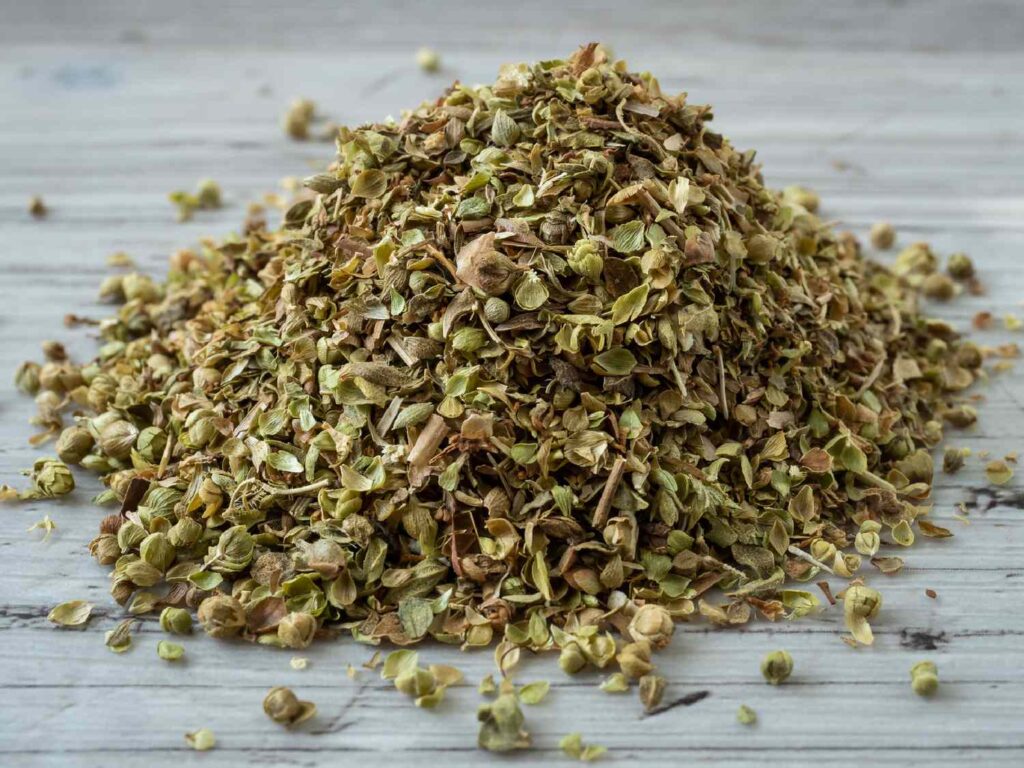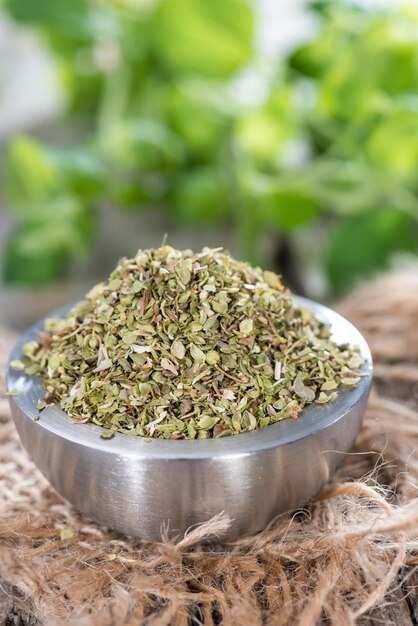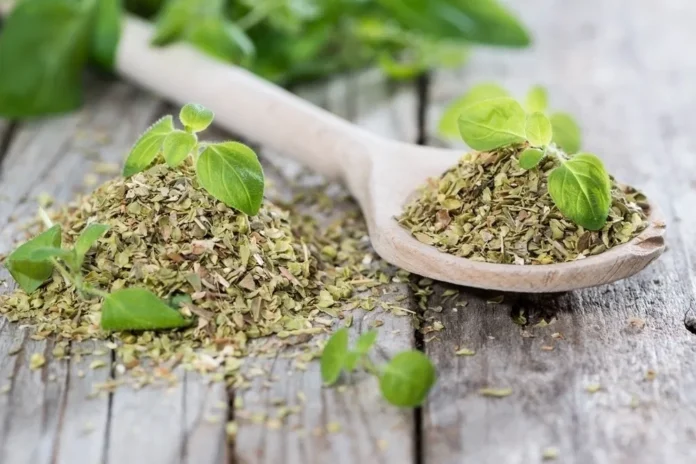INTRODUCTION:
Oregano (Origanum vulgare) is a popular culinary and medicinal herb belonging to the mint family (Lamiaceae). Native to the Mediterranean region, oregano is widely known for its strong aroma and warm, slightly bitter taste. The leaves, whether fresh or dried, are a staple in many global cuisines, particularly Italian, Greek, and Mexican dishes. Its versatility in cooking and natural remedies makes oregano a valued herb in both kitchens and traditional medicine cabinets around the world.

English: Oregano
Latin (Botanical): Origanum vulgare
Hindi: अजवायन के पत्ते (Ajwain ke patte) or ओरिगेनो
Arabic: زَعْتَر (Za‘tar) or أوريغانو (Oregano)
Tamil: ஓரிகனோ இலைகள் (Orikano ilaigal)
Telugu: ఓరెగానో ఆకులు (Oregano aakulu)
Bengali: ওরেগানো পাতা (Oregano pata)
Urdu: اوریگانو کے پتے (Oregano ke patte)
Russian: Орегано (Oregano)
Greek: Ρίγανη (Rígani)
Turkish: Kekik
Filipino (Tagalog): Oregano or Kalabo (a related local herb)
HEALTH BENEFITS:

Fights bacteria:
Test-tube studies show that oregano oil can effectively inhibit the growth of various bacteria, including E. coli and Staphylococcus aureus.
Combats viruses:
The carvacrol in oregano has been shown to inactivate viruses such as norovirus and herpes simplex virus in laboratory settings.
Inhibits fungus:
Oregano oil has demonstrated powerful antifungal effects, especially against Candida yeast, which can cause infections.
Eases digestive problems:
It may help relieve gas, bloating, and indigestion by stimulating the production of digestive juices.
Treats SIBO:
Herbal remedies, including those containing oregano compounds, have shown promise in treating small intestinal bacterial overgrowth (SIBO).
Fights parasites:
One study found that daily doses of emulsified oregano oil helped eliminate intestinal parasites in patients.
Kills cancer cells:
Studies have found that oregano extracts and carvacrol can stop the growth and cause the death of human colon cancer cells.
Rich in plant compounds:
Oregano contains antioxidant compounds like carvacrol, thymol, and rosmarinic acid.
Reduces oxidative stress:
By neutralizing free radicals, these compounds may help lower the risk of chronic diseases like cancer and heart disease.
SIDE EFFECTS:

Gastrointestinal:
Abdominal discomfort, heartburn, constipation, diarrhea, nausea, and vomiting.
Allergic Reactions
If you are allergic to plants in the mint family (like basil, sage, mint, or marjoram), you may also be allergic to oregano.
Bleeding:
Oregano may increase the risk of bleeding, so stop taking it at least two weeks before surgery.
Diabetes:
Oregano can lower blood sugar levels, so people with diabetes should monitor their blood sugar closely if using oregano supplements.
Pregnancy and Breastfeeding:
Avoid using oregano in medicinal amounts during pregnancy and breastfeeding due to a lack of safety information and potential risk of miscarriage.
HOW TO USE:
Culinary Uses:
Fresh oregano leaves can be chopped and added to salads, sauces, and marinades for a fresh, aromatic flavor.

Dried oregano is commonly sprinkled on pizzas, pasta dishes, grilled meats, and roasted vegetables to enhance taste.
It’s often included in herb blends like Italian seasoning and za’atar.
To get the best flavor, add dried oregano towards the end of cooking or sprinkle fresh oregano just before serving.
Medicinal Uses:
Oregano leaves can be brewed into a tea by steeping 1-2 teaspoons of dried leaves in hot water for 5-10 minutes. This tea is believed to support digestion and respiratory health.
Oregano oil, extracted from the leaves, is used in small amounts as a natural antimicrobial and anti-inflammatory agent (usually diluted before use).
Fresh leaves can be crushed and applied topically for minor skin irritations, but always do a patch test first.
Other Uses:
Oregano leaves can be used in homemade herb sachets and potpourri for their pleasant aroma.
They can also be infused in oils or vinegar to make flavored condiments.
Precautions
Some people may be allergic to oregano. Stop using it if you get a rash or itching.
Pregnant or breastfeeding women should avoid oregano oil and high doses. Using oregano as a spice is usually safe.
Oregano oil is strong and can irritate the skin. Always dilute it before use.




